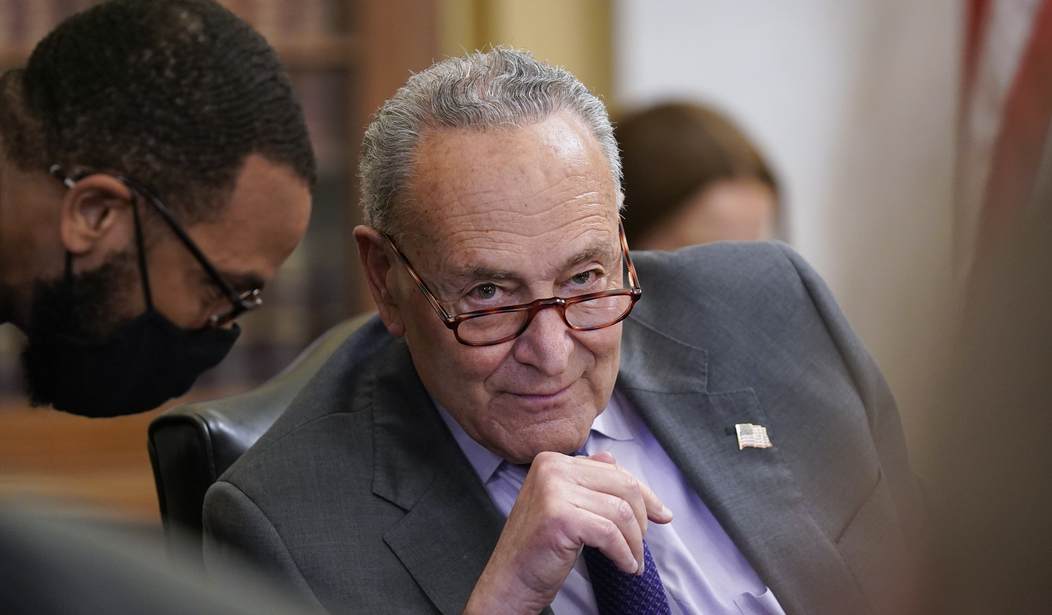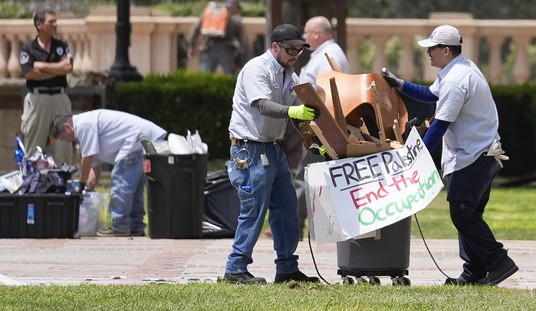Senate Majority Leader Chuck Schumer says he will meet with the 11 Democratic members of the Budget Committee to begin the process of passing a 2022 budget resolution. Included in next year’s budget will be Joe Biden’s $2.3 trillion infrastructure bill and his $1.8 trillion “American Jobs Plan” using the reconciliation process to ram it through Congress on a party-line vote.
“Now that President Biden’s fiscal ‘22 budget request has been received by Congress, the Budget Committee can begin the important work of producing a budget resolution,” he added.
Reconciliation is a long, laborious process and it’s not expected that a floor vote will happen until after the August recess. But once begun, there is nothing that Republicans can do to stop it. They can and will slow the process to a crawl by gumming up the works using every parliamentary trick in the book.
But Republicans will only be bit players going forward. The stars of the show will be the handful of moderate Democrats who will hold the fate of both the infrastructure and jobs bill in their hands.
Schumer also plans to bring a scaled-down infrastructure package to the Senate floor in July under regular order.
That bill would need 60 votes to pass outside the reconciliation process. But it’s running into opposition from Senate progressives such as Sen. Elizabeth Warren (D-Mass.) who say they won’t vote for a bipartisan infrastructure bill unless all 50 members of the Democratic caucus agree on the size and shape of the later reconciliation bill, which needs unanimous Democratic support to pass the 50-50 Senate.
“Both are moving forward, the bipartisan track and the track on reconciliation, and both we hope to get done in July, both the budget resolution and the bipartisan bill,” Schumer said.
Related: Biden’s Redefinition of ‘Infrastructure’ Does ‘Violence to the English Language’
The big worry of liberals is that the bipartisan infrastructure bill — if it passes, which is a big “if” — will make it impossible to pass the social safety net and climate change provisions included in Biden’s original bill. Radicals like Warren and Sanders aren’t concerned about roads and bridges. They want that extra trillion dollars in social spending and half a trillion spent on climate change initiatives.
The bipartisan strategy faces its share of skeptics. Sen. Bernie Sanders, a Vermont independent who caucuses with Democrats, told reporters Monday he will not vote for the plan.
“The bottom line is, there are a lot of needs facing this country,” he said. “Now is the time to address those needs, and it has to be paid for in a progressive way, given the fact that we have massive income and wealth inequality in America.”
At least two other Democrats — Sens. Ed Markey of Massachusetts and Jeff Merkley of Oregon — have signaled they will oppose an infrastructure deal unless it invests more in fighting climate change.
GOP Senator Rob Portman believes there are enough Republican votes to pass the bipartisan infrastructure bill. “I mean, this is a proposal for infrastructure that Republicans have traditionally supported. It’s also a proposal without raising income taxes. … I think it’s something that’s going to get a lot of support on both sides of the aisle.”
With the radicals opposed to anything less than Biden’s original $2.3 trillion bill and Republicans digging in their heels on passing any green initiatives, it’s hard to see a way forward for Biden that includes everything he wants.
Biden will be forced to compromise if he wants anything. The left will eat him alive for that, scream about a “betrayal,” and threaten to bolt the party. But realistically, they have no place else to go.










Join the conversation as a VIP Member